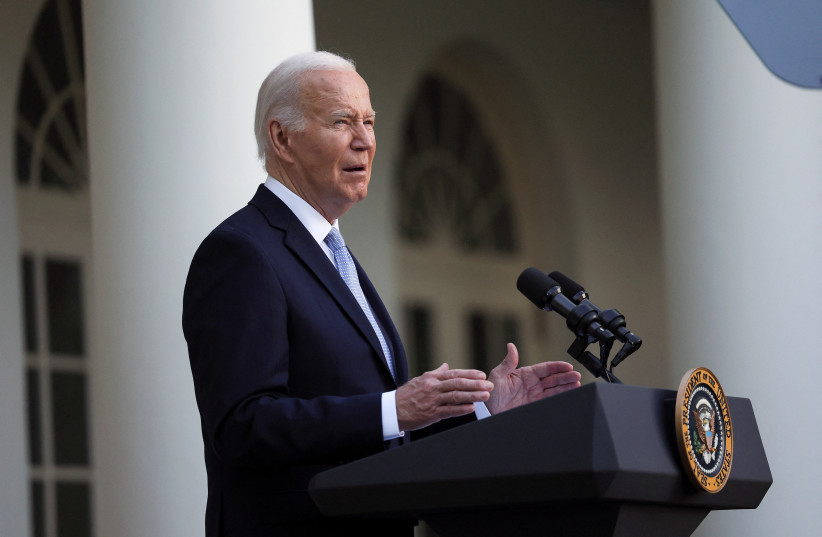"This Administration never supports anything we do until we do it," a senior Israeli official told The Wall Street Journal (WSJ) on Thursday. The WSJ editorial highlighted what it called “Israel's successful evacuation” of 950,000 civilians from Rafah, Gaza, despite months of opposition from the Biden Administration.
According to WSJ, for months, the White House insisted Israel had "no credible plan" to evacuate Rafah’s 1.3 million residents. President Joe Biden asserted there was no feasible way to conduct a major military operation with so many civilians present, leading to an arms embargo on Israel. "We’re walking away from Israel’s ability to wage war in those areas," Biden said.
Despite these objections, Israel proceeded with its plans. Secretary of State Antony Blinken and National Security Adviser Jake Sullivan both expressed doubts, claiming Israel had "no credible plan" and warning against launching a major operation into Rafah.
Biden Administration 'shifted' narrative
As the evacuation succeeded, the Biden Administration shifted its narrative, according to WSJ, claiming Israel had updated its plans to incorporate US concerns. A senior US official remarked, "It’s fair to say that the Israelis have updated their plans. They’ve incorporated many of the concerns that we have expressed." The official also suggested the operation might revive hostage negotiations.
The delay caused by the Biden Administration’s initial opposition has prolonged the conflict, primarily to Hamas’s detriment. A senior Israeli official criticized the US stance: "This Administration never supports anything we do until we do it."

The WSJ editorial explained that Rafah’s strategic importance is crucial for post-conflict plans, as Israel aims to prevent Hamas from maintaining a military presence and controlling the Egyptian border. Israel has uncovered 50 tunnels used for smuggling between Rafah and Egypt. Securing this border is essential to weakening Hamas’s ability to sustain an insurgency.
